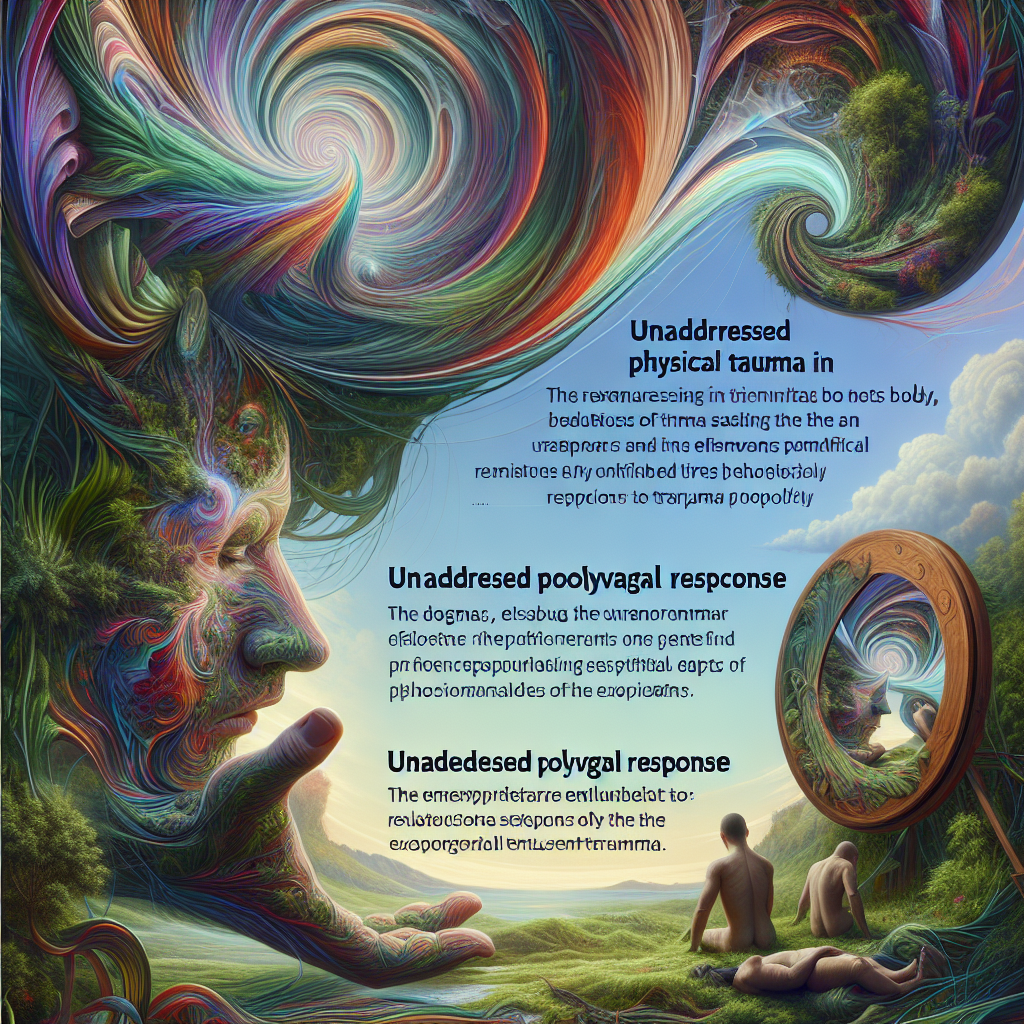In the realm of personal development and mental well-being, Sydney Banks and the Three Principles philosophy have garnered substantial attention. The captivating principles of Mind, Consciousness, and Thought proposed by Banks have served as a guiding light for many seeking inner peace and clarity. However, as enticing as this framework may seem, it is crucial to acknowledge the gaps that exist within its scope.
The Incomplete Narrative
While the Three Principles offer profound insights into the nature of human experience, it is essential to recognize that they do not address the intricate relationship between trauma and the body. Trauma, both psychological and physiological, plays a significant role in shaping an individual's well-being. Ignoring this vital aspect can result in an incomplete understanding of how past experiences manifest in present behaviors and emotions.
The Absence of Polyvagal Response
Another critical facet that remains overlooked in the teachings of Sydney Banks is the polyvagal response. Discovered by renowned researcher Dr. Stephen Porges, the polyvagal theory sheds light on how the nervous system influences our responses to stress and trauma. Understanding the polyvagal response is paramount in comprehending how individuals regulate their emotions and navigate challenging situations. By neglecting this critical component, the Three Principles fall short in providing a comprehensive framework for mental health and resilience.
The Pitfalls of Dogma and Simplistic Explanations
Moreover, the dogmatic nature of the Three Principles philosophy and its simplistic explanations can often lead to confusion among practitioners and individuals seeking guidance. While the principles themselves hold value, rigid adherence to a set of beliefs without room for critical inquiry can limit personal growth and hinder the exploration of alternative perspectives.
Embracing a Holistic Approach
To truly support individuals on their journey towards emotional well-being and self-discovery, it is imperative to embrace a more holistic approach that incorporates diverse perspectives and scientific insights. Integrating knowledge from fields such as psychology, trauma studies, and neuroscience can enrich our understanding of human behavior and pave the way for more effective interventions and support mechanisms.
Moving Beyond Limitations
Recognizing the limitations of any philosophical framework is not a sign of weakness but rather an opportunity for growth and evolution. By acknowledging the gaps in Sydney Banks' Three Principles and seeking to fill them with a more comprehensive understanding of trauma, the body, and the polyvagal response, we can pave the way for a more nuanced and inclusive approach to mental health and well-being.
Conclusion
In conclusion, while Sydney Banks and the Three Principles offer valuable insights into the nature of human consciousness and thought, it is essential to approach them with a critical lens. By acknowledging the limitations of this framework and striving to expand our knowledge beyond its boundaries, we can cultivate a more holistic and enriching approach to personal growth and mental well-being.
By embracing the complexity of the human experience and integrating diverse perspectives, we can move towards a more inclusive and compassionate understanding of ourselves and others. Let us embark on this journey of discovery with an open mind and a willingness to explore the depths of our inner landscape, beyond the confines of any single philosophy or belief system.

Let us continue to seek knowledge, challenge assumptions, and embrace growth in all its forms, as we strive to create a world where well-being and understanding flourish.

Comments